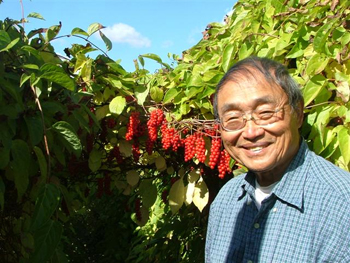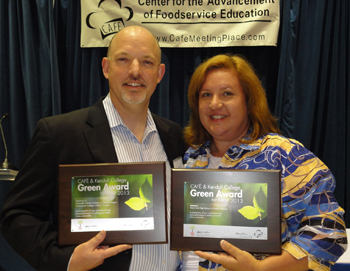Green Tomato: The Pioneer of Pioneer Valley
Wednesday, 04 September 2013 15:01
 Dr. Tso-Cheng Chang was a pioneer of “no pesticides or herbicides” farming in the United States. His farm, which grows vegetables for his award-winning restaurant in Amherst, Mass., not only is one of the largest bean-spout producers in the nation, it also grows schizandra berries—which might be the ginseng of this decade.
Dr. Tso-Cheng Chang was a pioneer of “no pesticides or herbicides” farming in the United States. His farm, which grows vegetables for his award-winning restaurant in Amherst, Mass., not only is one of the largest bean-spout producers in the nation, it also grows schizandra berries—which might be the ginseng of this decade.
Long before “shop local, buy local” became something Americans came to value, Dr. Tso-Cheng Chang grew his own Chinese vegetables to serve at his award-winning restaurant, Amherst Chinese Food, on Main Street in downtown Amherst, Mass. So when in 1983 he converted his farm in nearby Whatley into a small factory designed to mass-produce bean sprouts, it barely caused a ripple on the local business scene.
That same factory on Dr. Chang’s Farm recently celebrated its 30th anniversary with the distinction of being one of the largest soybean- and mung-bean-sprout facilities in the United States.
“You would say from the success of his restaurant and the sprout farm that Dr. Chang epitomizes the American dream, but his story goes beyond that,” says Steven V. Dubin, spokesperson for Dr. Chang Naturals, which grows and wholesales the company’s certified schizandra berries. “In fact, it’s quite fitting that his farm is in a region known as Pioneer Valley because Dr. Chang has pioneered a number of things, most notably ‘no herbicides or pesticides’ farming.”
Chang’s journey began in a small town in Shandong Province, China, where he was born in the late 1920s. He earned an undergraduate degree in agronomy from Taiwan University in 1953 and later emigrated to the United States, where he earned an M.S. in crop science from Michigan State University in 1966.




 A collegiate culinary-arts program in central Oregon and a high school in Phoenix earn top honors for exemplary practices in—and innovative teaching of—ecological sustainability.
A collegiate culinary-arts program in central Oregon and a high school in Phoenix earn top honors for exemplary practices in—and innovative teaching of—ecological sustainability. A significant profit center in any foodservice operation is energy efficiency and savings.
A significant profit center in any foodservice operation is energy efficiency and savings.